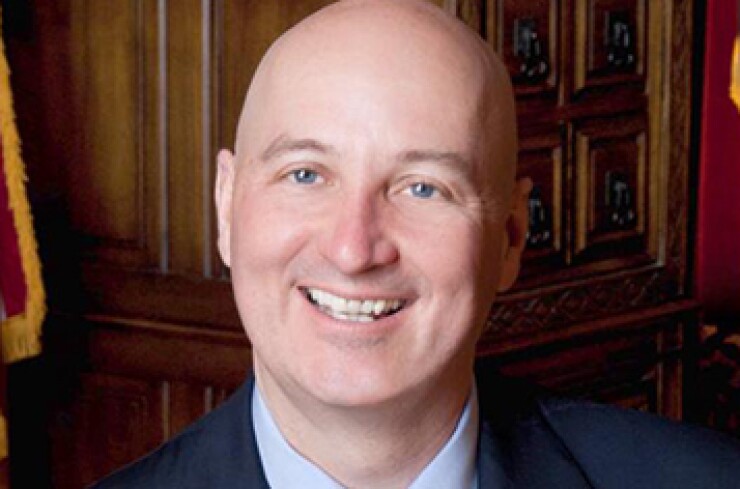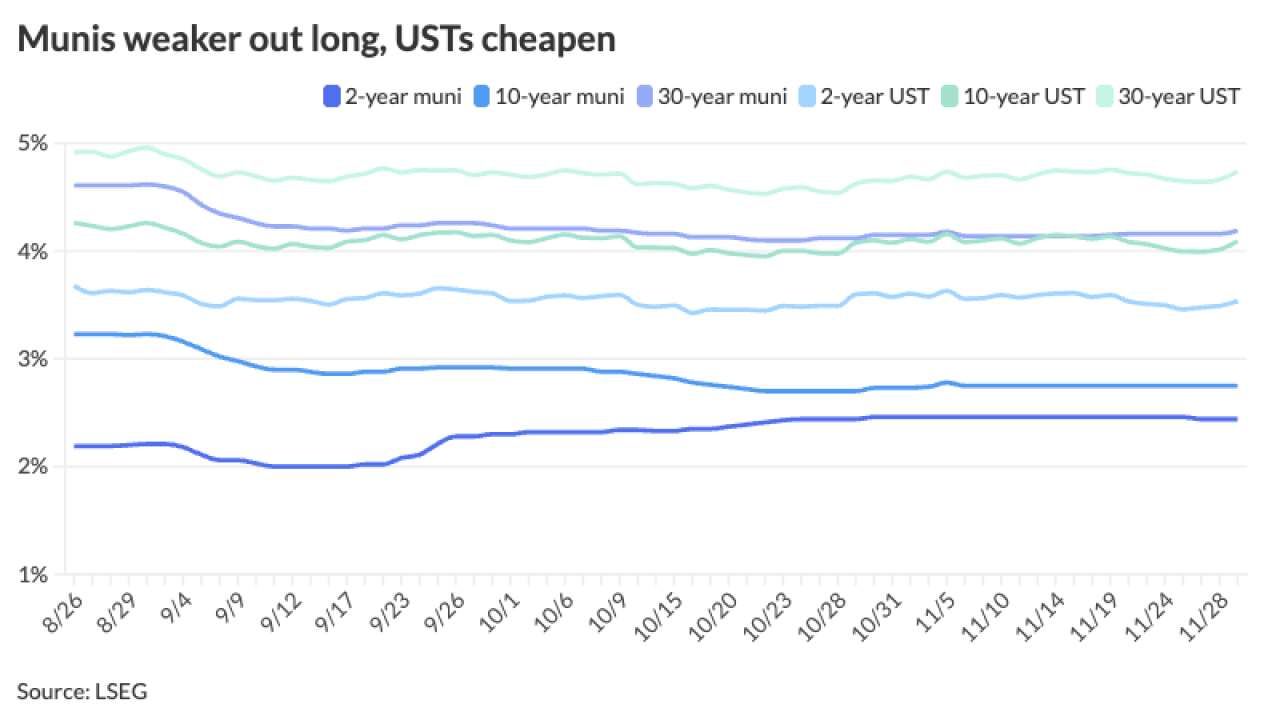
DALLAS – Nebraska plans to accelerate work on an unfinished expressway system and fund a replacement program for deteriorating bridges with a $150 million transportation infrastructure bank proposed by Gov. Pete Ricketts.
The bank's funding would be provided by transfers from the state's $728 million rainy day fund through 2023, Ricketts said Thursday at a news conference in Lincoln.
"We need to grow Nebraska, and of course our infrastructure is vital to that," he said.
Drawing down the rainy day fund will not endanger the state's finances or bond ratings, he added.
"I think the cash reserve fund is too large and a number that I am more comfortable with is around $500 million. This fits within that budget and it gets back to prioritizing how we want to spend our money," he said. "It's incredibly important that we have that 21st century roads infrastructure."
The infrastructure bank would allow Nebraska to continue its policy of pay-as-you-go funding for road projects, Ricketts said.
"Building infrastructure in a fiscally responsible manner is a key to how we grow Nebraska," he said. "Unlike other states that have relied on debt to build roads, Nebraska budgets for our priorities."
Sen. Jim Smith, chairman of the unicameral legislature's transportation committee, said he would introduce legislation creating the bank following the governor's state of the state address on Jan. 14.
Most of the bank's funding would be dedicated to completing the final 167 miles of a 600-mile network of express highways that the state promised to build in the 1980s, Smith said.
"The primary portion of this infrastructure bank will go to satisfy the promises and commitments we made back in the 1980s on expressway systems," he said.
The bank would be administered by the Nebraska Department of Roads. It also would provide funding for the replacement of deficient county bridges and for road projects to attract new businesses or accommodate expansion plans of existing ones.
The governor's proposal would allow the use of a design-build process on large projects, with the designer and contractor chosen simultaneously, rather than the cumbersome design-bid-build process now mandated for state roads.
State Roads Director Kyle Schneweis said the change could cut two to four years off projects that now take up to 12 years to complete.
"This proposal will save us time, it will save us money, and it's going to help us better support the economy in the state," he said.
A 45-mile, four-lane highway between Omaha and Norfolk that is a major link in the uncompleted expressway system would be not be completed until 2024 with the annual funding available in the current long-range program, he said.
The funding provided by the bank would allow work to begin on some of the highway projects by 2020, Schneweis said, with completion by 2033.
Lawmakers overrode a veto by Ricketts last year to raise the state's gasoline tax by 6 cents with four annual 1.5 cent increases. The new rate of 31.6 cents per gallon is expected to generate an additional $75 million a year when fully implemented in 2019, with $25 million allocated to the state and $50 million to counties.
Meanwhile, Maryland Gov. Larry Hogan said Thursday he will not seek a reduction in the state gasoline tax in 2016 after a similar effort failed in last year's General Assembly.
"We're not going to do that again," he said at a news conference in Annapolis.
Hogan wanted to end the automatic increases contained in a 2013 law that linked the tax rate to consumer inflation, but the proposal failed when the Maryland Department of Transportation said that would cut almost $3 billion from the $4.4 billion of new revenues expected over six years from the adjustments.





